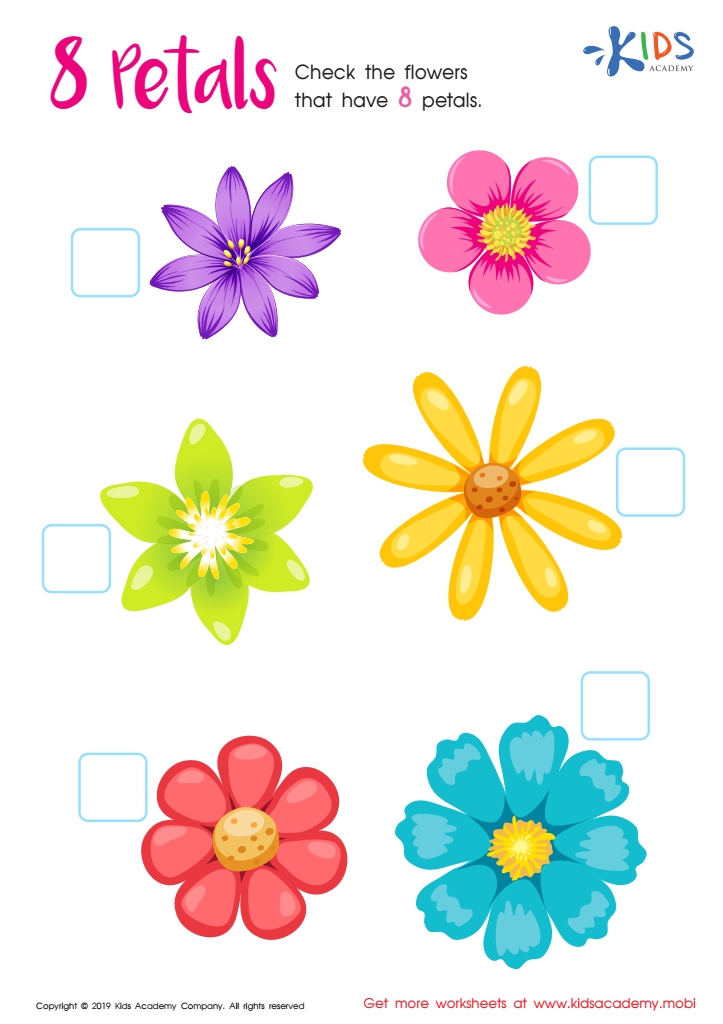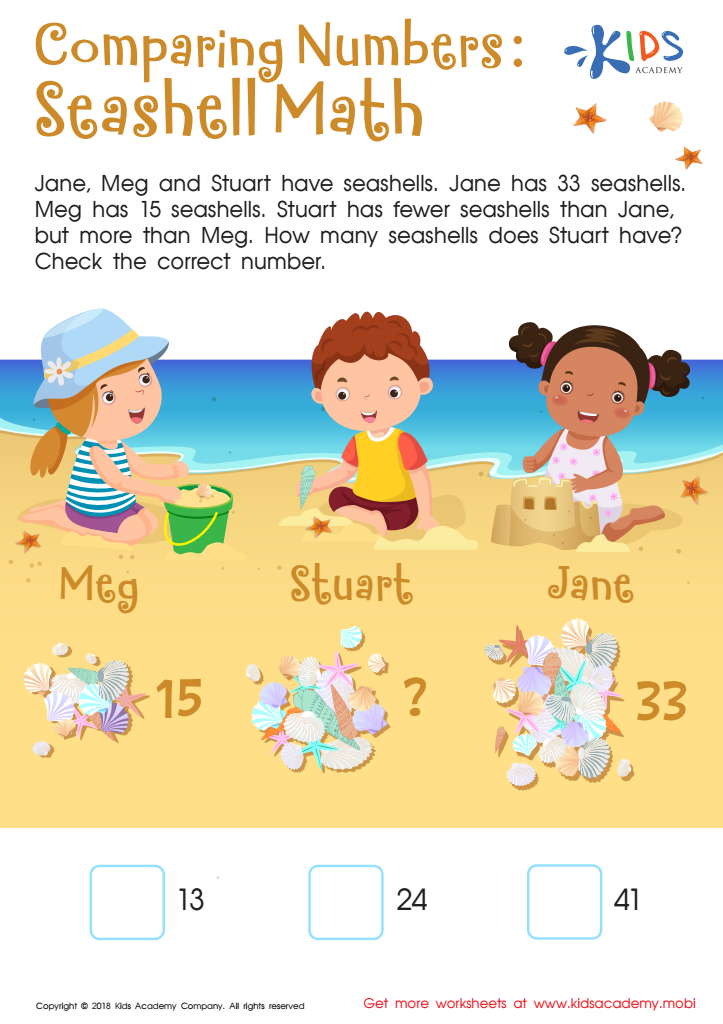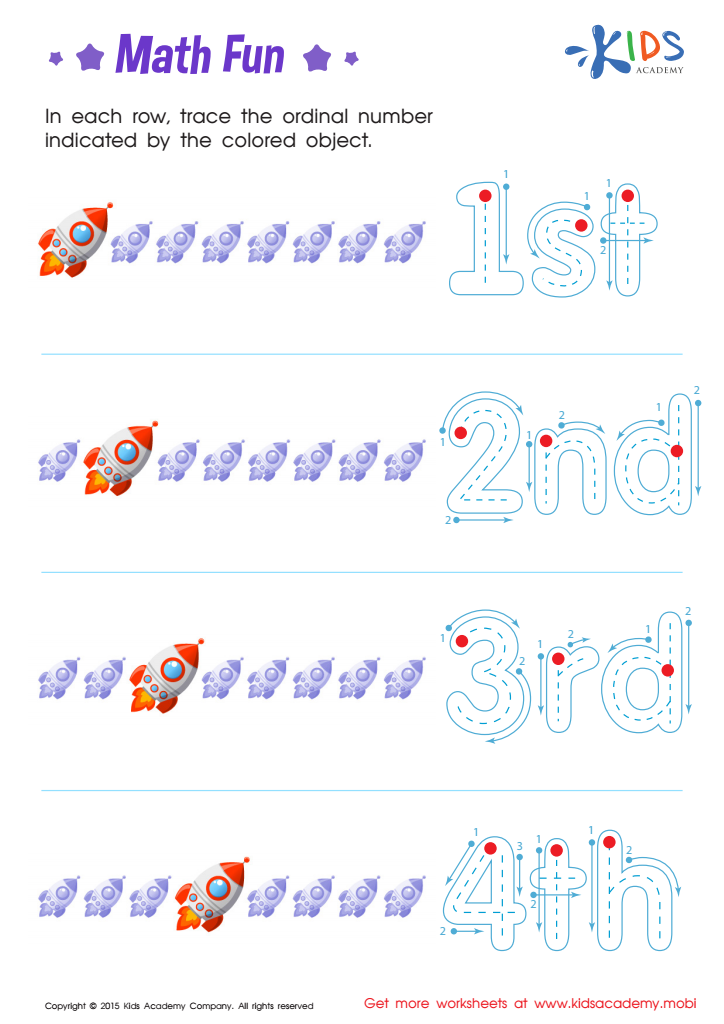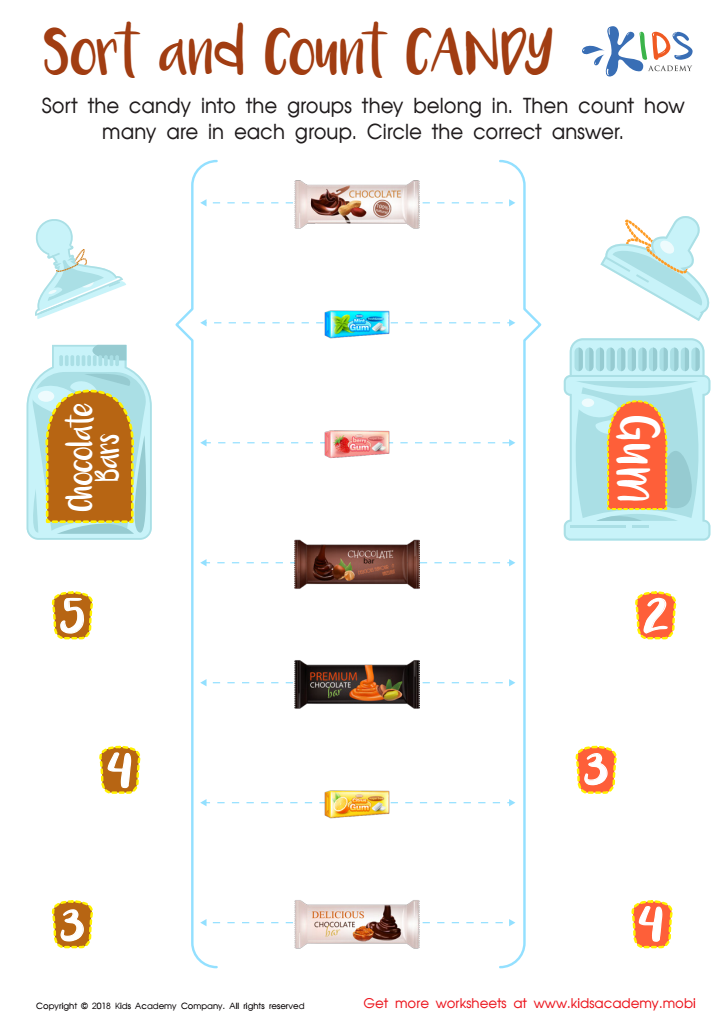Color recognition Normal Numbers Worksheets for Ages 5-6
4 filtered results
-
From - To
Explore our engaging Color Recognition Normal Numbers Worksheets designed specifically for children aged 5-6! These interactive resources combine learning numbers with vibrant colors, making math fun and exciting. Our worksheets help young learners develop essential color recognition skills while reinforcing their understanding of numbers. Each activity is carefully crafted to enhance cognitive abilities and promote creativity, ensuring a well-rounded educational experience. Perfect for home or classroom use, these worksheets are sure to captivate your child's attention and boost their confidence in number recognition. Download these printable worksheets today and watch your little ones thrive in their learning journey!


8 Petals Worksheet


Seashell Collectors Worksheet


Ordinal Numbers: Math Fun Worksheet


Sort and Count Candy Worksheet
Color recognition and number identification are foundational skills for children aged 5-6, forming the core of early education development. Parents and teachers should prioritize these areas because they directly impact a child's cognitive and social growth. Recognizing colors helps children differentiate similar objects, enhances their language skills, and boosts their ability to sort and categorize, which is essential for problem-solving.
Learning normal numbers not only establishes the basic understanding of quantity and counting but also introduces children to essential mathematical concepts that will form the basis for future learning. Mastering these skills at an early age supports the development of logical thinking and encourages curiosity.
Moreover, recognizing colors and numbers improves children's ability to follow instructions and engage in interactive play. This fosters social skills as they collaborate and communicate with peers. Environments rich in color and numerical activities, such as counting games or art projects, make learning enjoyable and engaging, catering to diverse learning styles.
Ultimately, equipping young learners with strong color and number recognition skills provides them with a solid foundation for academic success, enhancing their confidence and enthusiasm for learning throughout their educational journey. Early intervention in these areas will ensure kids are ready for more complex topics in the future.
 Assign to My Students
Assign to My Students
















